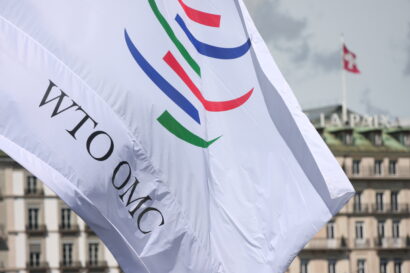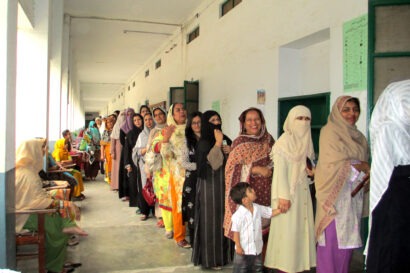Developments in international tax are happening incredibly quickly. It is vital that African countries act together to develop meaningful responses. The best way to do this is to form an African international tax forum to develop tax policies for Africans, by Africans.
A Cold House for Africans
The international tax governance system has been failing developing countries for decades. To date, international tax governance has been monopolised by the OECD and largely to the exclusion of developing countries. Today, however, the international tax landscape is rapidly changing. Because of this, it has become increasingly important for developing countries to participate in international tax discussions. It is paramount that African countries create an African international tax governance structure within the African Union (AU).
A New Forum
The AU offers an established and flexible framework which could allow for the creation of a politically sensitive, inclusive, multilateral and counterhegemonic African tax governance structure.
To do this, the 54 African countries would be divided into working groups within which they decide on tax policies, based on their similar backgrounds and that would best represent their approach and response to international tax issues. The African Tax Administration Forum (ATAF) would play an advisory role to all of the working groups. In doing so, ATAF would continue to function as it currently does, except now it would be able to provide more specifically tailored guidance or models to the working groups. For instance, ATAF could draft model digital service tax legislation for the East African Community (EAC) rather than for the continent of Africa.
Once these policies have been decided, the working groups would then present them to the AU Assembly where all the AU member states would participate. The purpose of the AU Assembly’s involvement would not be to grant approval or make decisions about the policies, but rather to check that these policies are coherent across the continent. Because of their involvement with all the working groups, ATAF would have an early stage opportunity to smooth out any technical points of incoherence across the working groups.
For instance, if all of the working groups when adopting digital service taxes consistently only impose the tax on non-residents while allowing for their formal corporate income tax systems to tax similarly positioned residents, international tax arbitrage may arise. This will occur whether or not there are any changes in the design of the tax base across the working groups.
The role of the AU then at this stage would be to check for coherence across non-tax policies. For example, how would the proposed tax polices affect trade relations or certain political objectives? The AU Assembly is well-placed to consider this intersection of policies as it would have the ability to ensure policies don’t work against each other across different jurisdictions. In so doing, the AU would be in a position to create coherent policies across the continent that would transcend the tax sphere.
Where incoherence arises, affected parties would be empowered to work together to find a resolution at the working group level. African countries should approach all aspects of international tax negotiation through these regional working groups.
Having said that, some issues would enable every aspect of this proposed governance structure to work to its fullest potential. Issues that require much coordination among African countries, for instance, would benefit the most from this structure. The issue of whether to adopt a direct digital service tax, and how it should be designed across the working groups, would require that each governance tier functions efficiently and that every aspect of the discussions should directly shape the outcome.
On the other hand, other issues that require a uniform and more truncated continental response would also benefit from this structure, but the nuances of the discussions at the working group level, for instance, may not affect the final outcome. For example, the question of whether it would benefit African countries to adopt the OECD’s proposed Pillar One and consequently, whether they should adopt it, would elicit a fairly uniform and continental-wide response of either yes or no, when applied under this new governance structure. However, the reasons for this decision would likely be different across the working groups and such differences may not necessarily affect the decided response. A benefit of this governance structure in this context then is that such nuances in reasoning would not be lost, while the focus would justifiably fall on the final continental-wide decision.
Models for Meaningful Working Groups
Given the great disparities between African countries, how is one to divide 54 African countries into meaningful working groups? For this, I propose four models.
The first model is the most obvious, and that is to divide the countries into geographical groups. That would produce working groups of African countries who are geographically located in Northern, Southern, Eastern, Western and Central Africa.
The second model is to divide African countries according to their income levels based on the classifications and data made available by the World Bank. This would create groups such as high-income; upper-middle-income; lower-middle-income and low-income countries.
The third model is to divide African countries according to their UN Human Development Index. And the fourth model is to divide the African countries according to the eight regional economic communities (RECs) recognised by the AU. Collectively, these RECs have 106 members which includes overlapping memberships by some African countries. Because of this, it would be necessary for those African countries to choose one REC to which they feel the most affiliated.
The fourth model may hold the most promise practically because it allows for the existing REC structures within Africa to coordinate and function alongside AU organs, like the AU Assembly. It would also make sense because the members of the RECs have already found some level of common interest which brought them together into the REC in the first place. This would make it easier for them to identify and agree on tax policies that would work best for the region.
Lastly, it may be possible for all of these models to be refined by adding further layers to the groupings, such as including common languages and/or legal culture in ensuring a greater level of homogeneity.
Toward a New System
The current international tax governance system has not been kind to African countries. Many have noted how the current system only serves to deepen existing inequalities and encourage more disparity in economic outcomes. At the same time, Africa has embarked upon a momentous journey with the coming into effect of the African Continental Free Trade Area Agreement. Not only does this instrument hold the potential to bring prosperity to Africa and her citizens; it also reflects an uncharacteristic willingness on the part of African leaders to work together to collectively realise a common goal.
Time is of the essence in international tax, as important global tax policy decisions are being made quickly. In order for African countries to participate in such decision-making, it is vital that they seize the opportunity to make their own decisions. In this piece, I’ve proposed how they can do this through the African Union with the assistance of ATAF.
This is the third of several blog posts published alongside an ICTD conference facilitating critical debates on the future of multilateral cooperation. Join the discussions by tuning in to the ICTD’s livestream.



